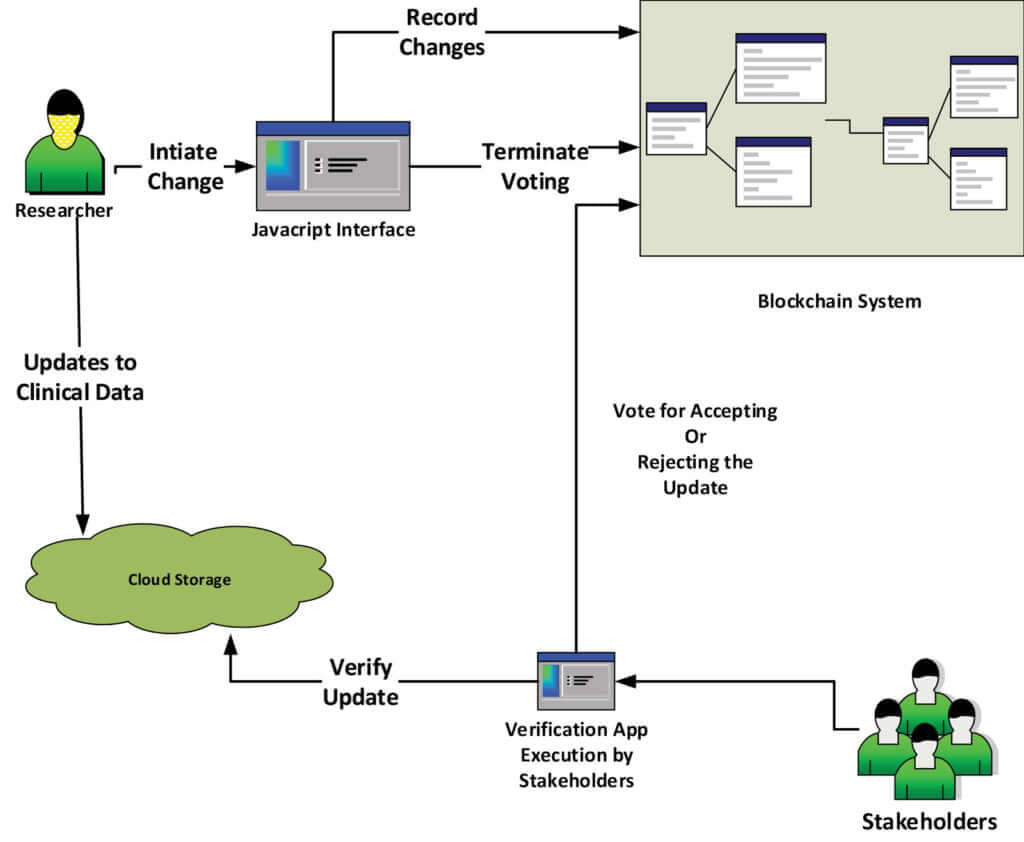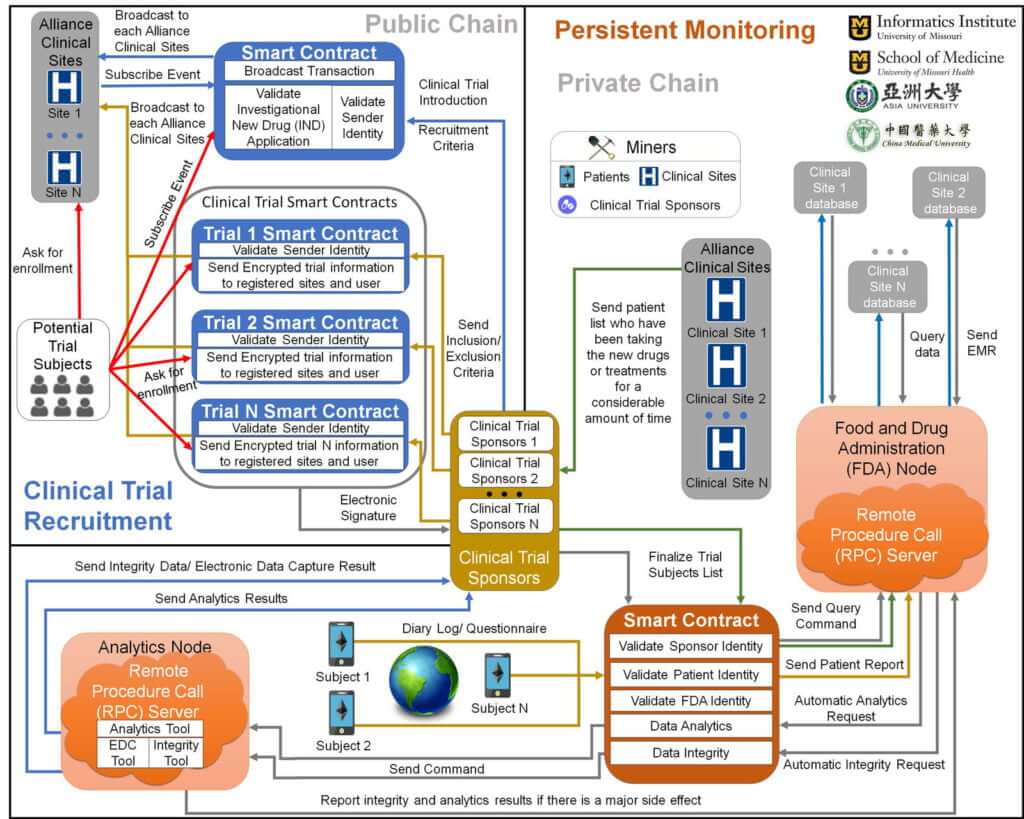TABLE OF CONTENTS

Clinical research is a big deal as it is saddled with almost a $100 million price tag per trial. Despite such massive costs, clinical trials continue to be one of the most expensive aspects of the modern-day healthcare panorama. Randomized clinical trials (RCTs) are believed to be the gold standard of the healthcare research and development. They represent the foremost procedures by which new techniques are evaluated for effectiveness and risks before making them available to for public welfare.
Healthcare experts claim that as much as 30% of the drug development timeline gets devoured by clinical research, which is perhaps the main reason for it being exorbitant. With the development timeline at stake, what is more unsettling here is that over 10% of clinical investigation sites tasked with patient recruitment are usually unsuccessful to enroll a single participant.
Anyway, let us answer few questions before we move ahead with the blockchain solution.
Blockchain for Healthcare Data
A safe and effective drug or medical equipment that can be used for prevention or treatment of a disease in order to enhance the quality of life. Along with saving lives and creating a trustworthy healthcare future, DATA is the most important value generated out of successful a clinical trial.
Blockchain comes into play at the pre-trial activities
Before clinical trial kick-starts and patients get the recommended treatment, there is a huge amount of patient information and documentation which needs to be in safe hands.

Patient Collaboration: Firstly, getting the patient on board for a trial is a half battle won. During a trial, blockchain would rationalize the process of getting consent from each patient. It will address various issues (unapproved forms, invalid consent forms/failure to gain consent for a protocol) in a decentralized network where every activity will be approved and time-stamped.
By adding a blockchain layer in existing clinical settings, data can be automatically shared and easily accessed by anyone having the access to the chain. In blockchain clinical trials, it is possible to create a collaborative environment that can track all versions of a patient’s health-related data.
By introducing Blockchain technology, managing, monitoring, and tracking of data related to patient’s information can be tracked at each stage. Changes in a blockchain network need approval from each user or node in order to maintain the chain.

The Role of Smart Contracts
The idea of having uninformed patients is the bygone era. Having the patients on board and having their fully informed consent for a clinical trial is perhaps a major challenge. At present, there is no such provision where patients can view the necessary documents and move ahead to provide their consent.
Here Smart Contracts come into play,
According to Wikipedia, “Smart Contracts are computer protocols that facilitate, verify, or enforce the negotiation of a contract”, and their execution can be implemented by using cryptographic hash chains.
By creating Smart Contracts, consent between the patient and provider becomes completely transparent and upfront as it is truly a patient-driven. With patients’ aware of the information sharing and monitoring at all times, they are able to accept each piece of new information as it gets finalized and recognized by others in the private blockchain network.
This image explains how Smart Contracts work for Public and Private chains

At Patient level
At present, there is an enormous room for human error as a single patient visit consists of numerous data points that are spread across multiple avenues. The blockchain provides utmost impenetrable security, it can impact the way clinical trials are being conducted inefficiently by managing the sensitive health-related data. The blockchain is built on an encrypted platform, which means that the patients can expect secured reports, transactions and documents that are verified and they do not need to undergo the same procedure again and again.
A Secured Data Infrastructure
Researchers and healthcare experts are confident that the Blockchain technology would allow trial and patient information to synchronize. This will likewise connect the patients directly to the trials and the patient will be notified at each step regarding his/her personal data. Additionally, the ability blockchain technology brings would improve the communication in clinical trial results.






 Rising Star Award
Rising Star Award
 Premium Usability Award
Premium Usability Award


